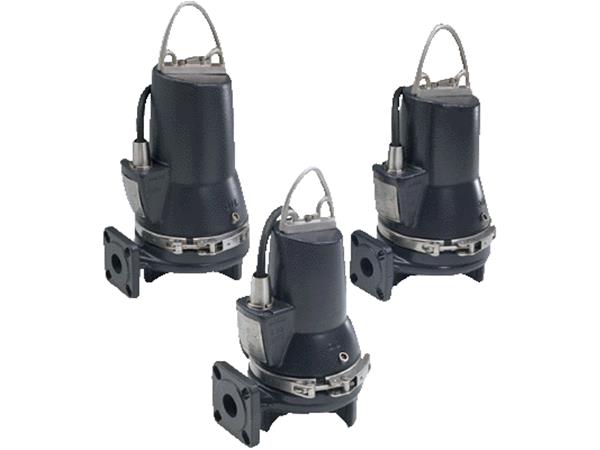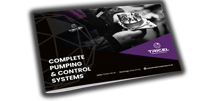PUMPING SOLUTIONS
Sewage Pump: A Guide to Efficient Waste Management
OVERVIEW
In today’s modern world, efficient waste management is crucial for maintaining a clean and healthy environment. One integral component of waste management systems is the sewage pump. Whether you’re a homeowner, contractor, or facility manager, understanding sewage pumps is essential for ensuring proper sanitation and preventing environmental contamination. This article will delve into the world of sewage pumps, covering everything from their types and functionalities to installation tips and maintenance guidelines.
If you have any questions, feel free to call us or use our quote form
To speak to one of our agents online, click here
types of sewage pumps
Sewage pump come in various types, each designed for specific applications and environments. Understanding the differences between these types is essential for selecting the right pump for your needs.
Submersible Sewage Pumps
Submersible sewage pump are installed below ground level and are designed to handle raw sewage and wastewater. These pumps are submerged in the sewage basin, efficiently pumping waste to the desired location for treatment or disposal.
Submersible sewage pump offer several advantages, including:
- Efficient operation without the need for priming
- Reduced risk of pump cavitation
- Space-saving design, ideal for compact installations
Pedestal Sewage Pumps
Unlike submersible pumps, pedestal sewage pump are installed above ground level. They feature a motor mounted on a shaft above the sump basin, with the pump at the base. Pedestal pumps are commonly used in applications requiring frequent maintenance or inspection, as the motor is easily accessible.
Key benefits of pedestal sewage pump include:
- Easy access for maintenance and repairs
- Suitable for applications with shallow sump basins
- Enhanced motor cooling, leading to a longer lifespan
Grinder Sewage Pumps
Grinder sewage pump are designed to handle rigid solids and debris commonly found in sewage and wastewater. These pumps feature a grinding mechanism that macerates solid waste before pumping, reducing the risk of clogs and blockages in the system.
Advantages of grinder sewage pumps include:
- Efficient handling of solid waste and debris
- Reduced risk of clogging and pump damage
- Suitable for applications with high solids content
Effluent Sewage Pumps
Effluent sewage pump are designed to handle relatively clean water with low levels of suspended solids. These pumps are commonly used in septic systems, sump pits, and other wastewater applications where the water may contain some solids but is not heavily laden with debris.
Key features of effluent sewage pumps include:
- Ability to handle partially treated wastewater
- Suitable for residential and light commercial applications
- Energy-efficient operation
installation process
Proper sewage pump installation is critical for optimal performance and longevity. Whether installing a new pump or replacing an existing one, following these steps can help you achieve a successful installation.
Step 1: Select the Right Pump
Before beginning the installation process, selecting the right sewage pump for your specific application is essential. Consider factors such as flow rate, head pressure, and the type of waste being pumped when choosing a pump model.
Tip: Consult with a professional plumber or sewage pump installer if you’re unsure about which pump is best suited for your needs.
Step 2: Prepare the Installation Site
Once you’ve selected the pump, prepare the installation site by ensuring the sewage basin or sump pit is clean and debris-free. Additionally, check the basin dimensions to ensure it can accommodate the pump and provide proper clearance for installation and maintenance.
Pro Tip: Consider installing a sewage basin alarm to alert you of potential issues, such as high water levels or pump malfunctions.
Step 3: Install the Pump
Carefully lower the sewage pump into the basin or sump pit, ensuring that it is positioned correctly and securely mounted according to the manufacturer’s instructions. Make sure all connections are tight and secure, and double-check the alignment of the pump to prevent issues during operation.
Expert Tip: Use a check valve in the discharge line to prevent backflow and ensure efficient pump performance.
Step 4: Test the Pump
Conduct thorough testing once the pump is installed to ensure proper functionality and performance. Test the pump under various conditions, including normal operation and peak flow rates, to verify that it can handle the intended workload.
Insider Tip: Regularly test the pump’s float switch and alarm system to ensure they are functioning correctly and can alert you to any potential issues.
Step 5: Complete the Installation
After successful testing, complete the installation by securing loose connections, sealing access points, and ensuring proper electrical wiring and grounding. Take the time to label all components for easy identification during future maintenance and troubleshooting.
Maintenance Tip: Create a maintenance schedule and checklist to ensure regular upkeep of your sewage pump, including inspections, cleaning, and lubrication.
Maintenance Tip
Regular maintenance is essential for ensuring the continued performance and longevity of your sewage pump. By following these maintenance tips, you can keep your pump running smoothly and avoid costly repairs or replacements.
Inspect and Clean the Pump
Regularly inspect the pump for signs of wear, damage, or corrosion, and clean any debris or buildup from the impeller, housing, and intake screens. Pay special attention to the float switch and alarm system, ensuring they are free of obstructions and functioning correctly.
.

At Tricelpumps.co.uk we carry a large selection of Grundfos pumps, you can view our range of Grundfos pumps here
PACKAGED PUMPING SETS
Designed to deliver sufficient volume and water pressure
FIRE PUMPS
Full range of Fire Protection Pumps from small to packaged systems
PACKAGED PUMPING STATIONS
Pumping stations offer the ideal solution where gravity drainage is not possible
RECENT PROJECTS
Recent Projects Completed
Tricel is one of the largest UK pump distributors specialising in Commercial Building Services projects. We offer a wide range of products from circulator pumps to Wet Riser booster sets.
Our team includes experts which are happy to select and quote your equipment requirements, or attend site and size the equipment from scratch. We at Tricel pride ourselves on the highest possible levels of customer service, before, during, and after project completion.
We provide preventative maintenance contracts and also cater for specific repairs, including replacements seals, or complete overhauls.
150
Hotels
125
Schools
50
Hospitals
300
Apartment Blocks
305
Commercial Buildings
PUMP COMMISSIONING
Our skilled team of specialist engineers are ready to specify, supply, install, service and maintain pumps and their control systems
SERVICE & MAINTENANCE
We provide preventative maintenance contracts and also cater for specific repairs, including replacements seals or complete overhauls
SITE SURVEYS & ASSESSMENTS
Our technical team will visit your location and complete an entire site survey to ensure your project is accurately specified, and the most suitable system installed and maintained to the highest quality
CUSTOMER TECHNICAL SUPPORT
Through our 35 years of operation, we have accumulated a wealth of product knowledge and application experience that we use to support our customers
